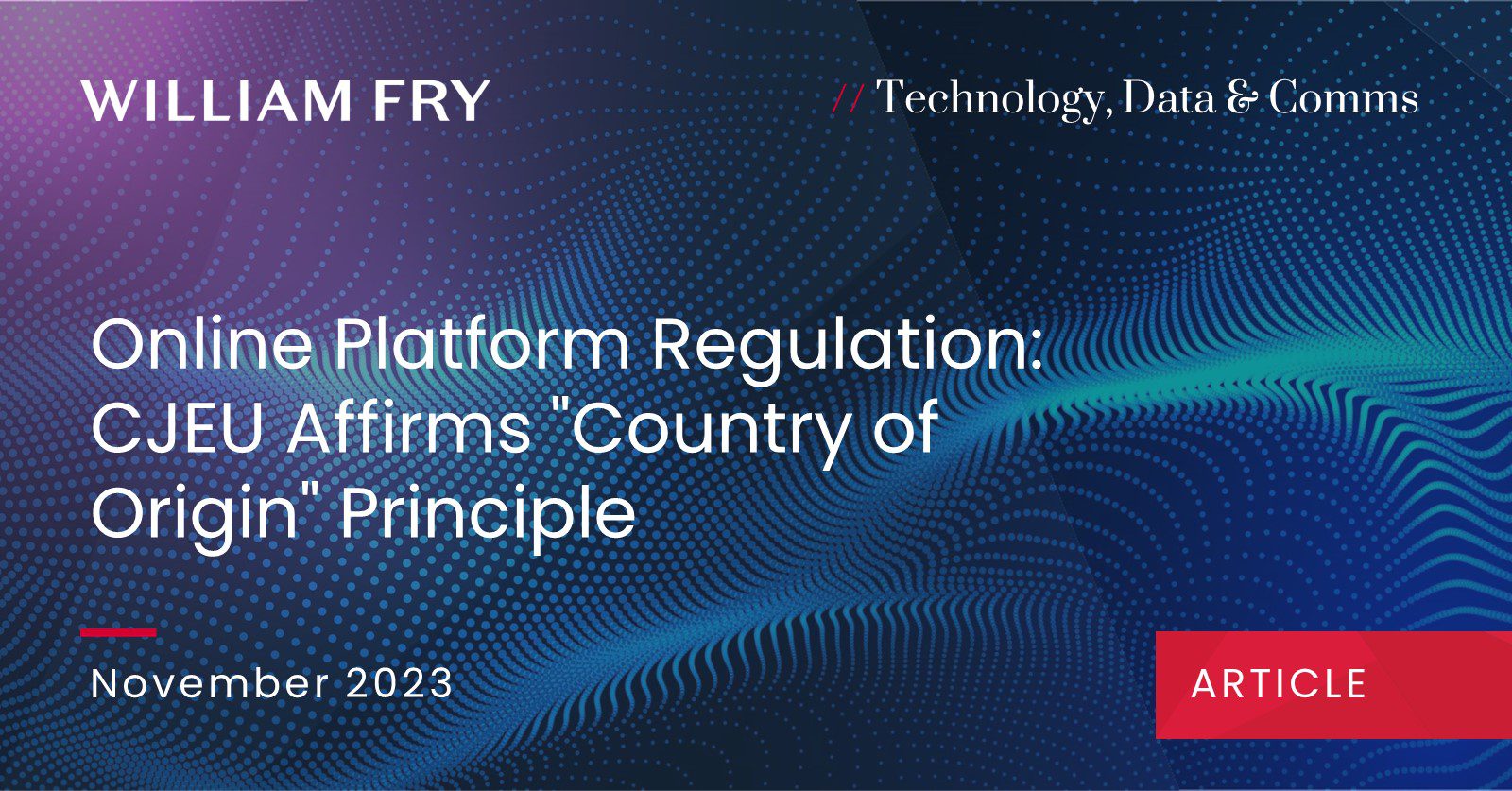The Court of Justice of the European Union (CJEU) in Case C-376/22, Google Ireland v KommAustria has confirmed that EU member states may not subject online platforms established in another member state to “general and abstract” obligations under national law.
This decision affirms the “country of origin” principle, under which primary responsibility for regulating an online platform belongs to the EU member state in which that platform is established.
The decision arose from a challenge brought by Meta Platforms Ireland, TikTok and Google Ireland – all online platforms with their main EU establishment in Ireland – to an Austrian content moderation law enacted in 2021. The Austrian law imposed an obligation on service providers to put in place an effective and transparent system of notification relating to allegedly illegal content available on the communication platform. It also imposed an obligation on those caught within its remit to draw up an annual, or, in the case of communication platforms with over one million registered users, a six-monthly report on the handling of notifications relating to allegedly illegal content. Failure to do so could result in fines of up to €10m.
The three platforms argued that, under the “country of origin” principle, the Austrian law should not apply to them.
“Country of origin” principle
The “country of origin” principle is enshrined in Article 3 of the e-Commerce Directive and underpins much other EU regulation in the online platforms space. It provides that “information society services” (i.e. online platforms) should be regulated “at source”. This means that platforms are primarily subject to the laws of the EU member state in which they are established and that other member states’ online platform regulations will not apply to them even if they provide services in that other member state.
The rule means that the obligations and responsibilities of an online platform established in Ireland will be determined by Irish law, even where that platform is providing services across the whole of the EU.
As a limited exception to the rule, other member states may take certain measures to protect public health, public security, or consumers; but only in very limited circumstances and with prior notice to both the European Commission and the member state in which the platform concerned is established.
CJEU decision
In its ruling, the CJEU restated the core aim of the “country of origin” principle, which is to establish a legal framework to guarantee the free movement of information society services between member states. The court noted that the rule aims to exclude hurdles which would arise from variable national rules relating to the same subject matter and that such a “national approach” to platform regulation would not align with the EU right to free movement of information society services.
In its decision, the CJEU acknowledged the limited exception to the principle, which allows member states other than the one in which the online platform is established to impose restrictions on that platform. However, the CJEU emphasised that this exception only allows a member state to intervene in specific circumstances and on a case-by-case basis; it does not allow member states to impose general rules which apply to online platforms irrespective of whether it is established in that or another member state.
Key takeaways
The decision affirms the “country of origin” principle and further clarifies the scope of the limited exception to that rule. It makes clear that while member states may direct specific measures to online platforms incorporated in other member states, this can only be done in limited circumstances and on a case-by-case basis.
The decision is particularly relevant from an Irish perspective since many of the largest online platforms in Europe have their main establishment in Ireland. For example, Ireland is home to the majority of the 17 very large online platforms (VLOPs), and two very large online search engines (VLOSEs), recently designated by the European Commission in the context of the Digital Services Act (for more on this see our previous article here). The CJEU decision emphasises that those platforms and search engines are primarily subject to Irish law and within the remit of Irish regulators.
The decision is timely given the significant growth in the volume and complexity of online platform regulation, much of which is underpinned by the “country of origin” principle.
Click here to access the decision on the Curia website.
If you or your business require assistance in navigating these online content related pieces of legislation, as a first step we encourage you to download our Technology Regulation Playbook here for further insights, and contact our dedicated technology team which is on hand to address any further queries you might have in this area.
Contributed by Hannah Garvey




